Weekly Index
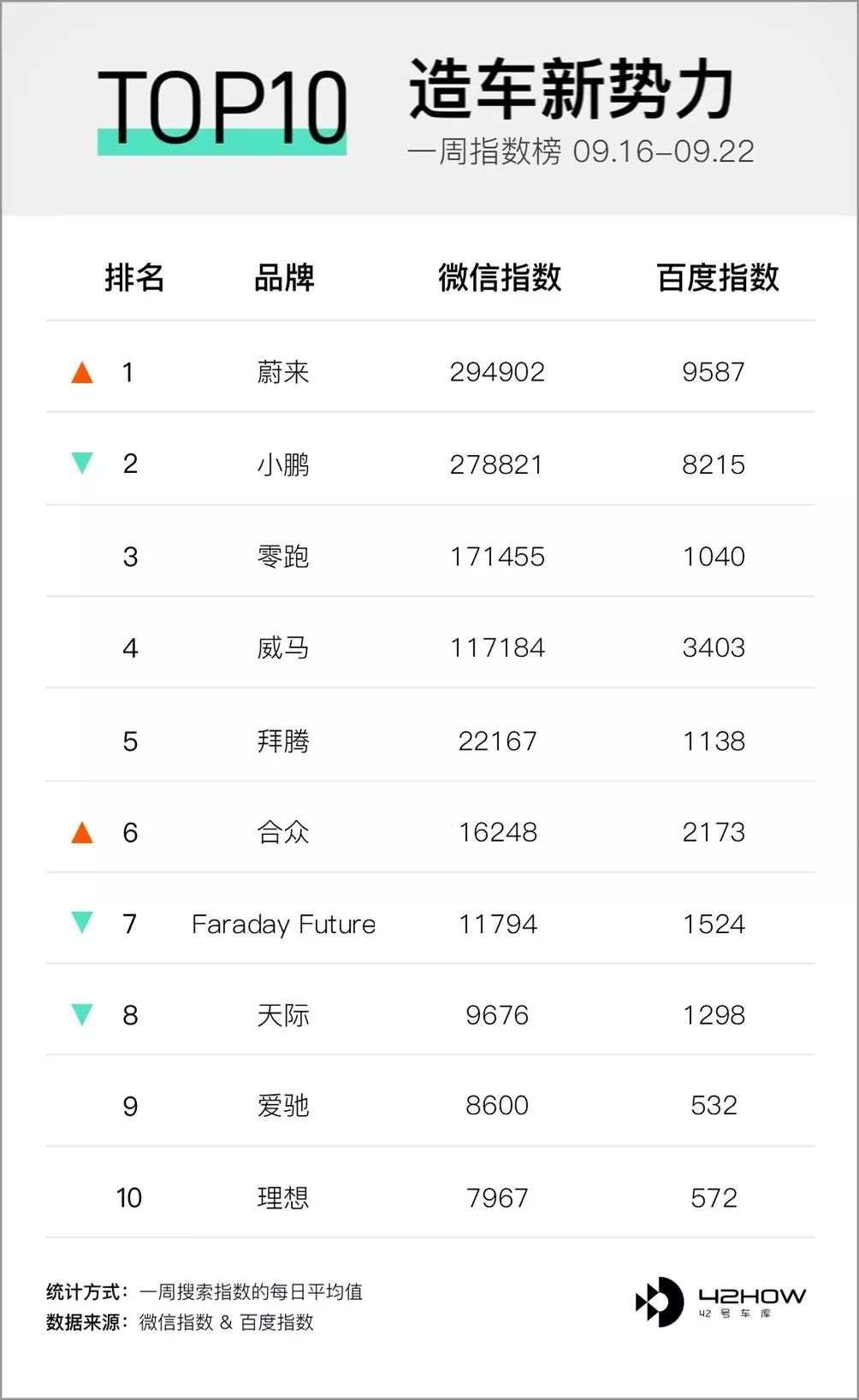
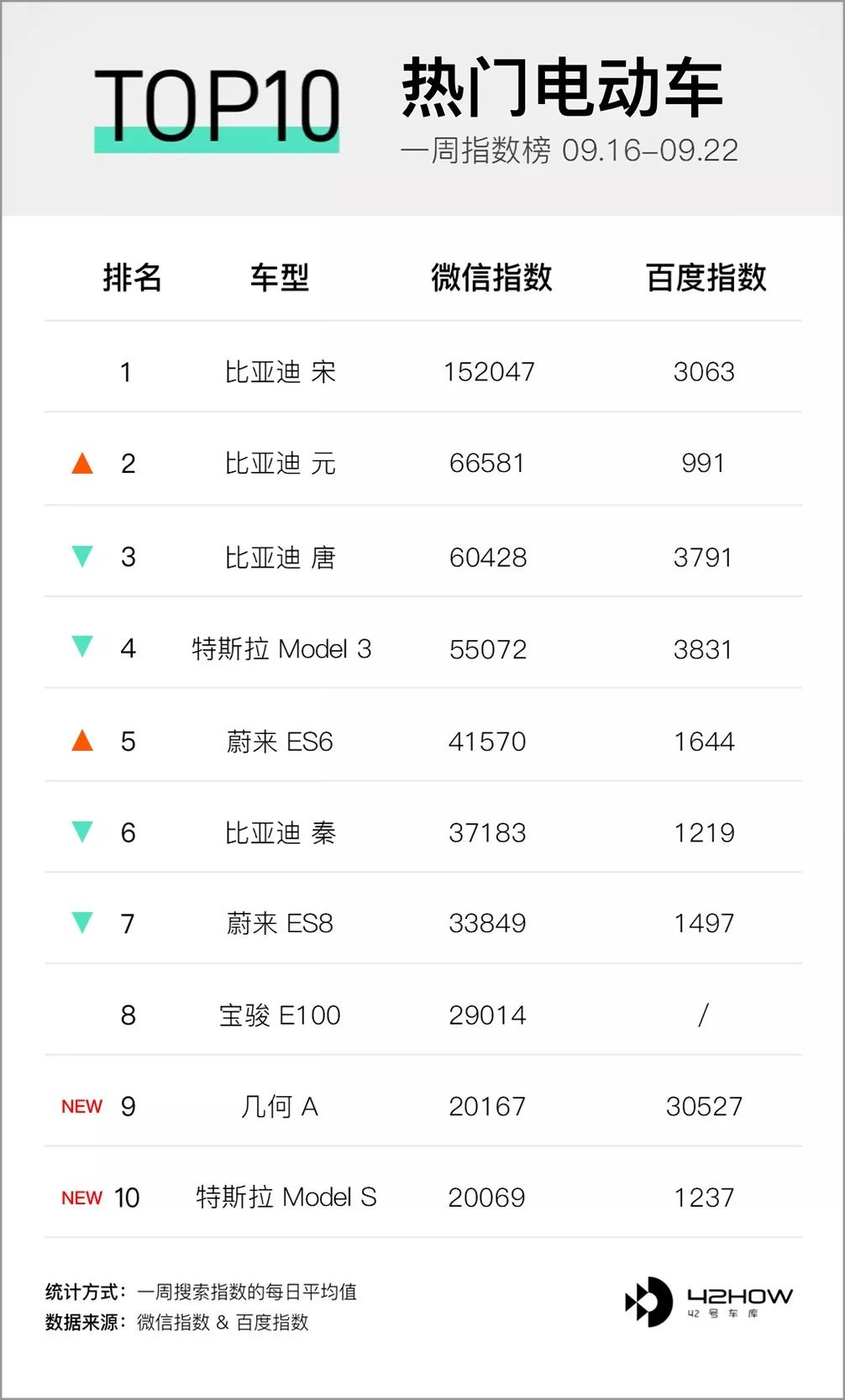
Weekly News
FF91 Confirms Production Date Again: September 2020
On September 20th, Faraday Future held a media summit at its headquarters in Gardena, California. Its new CEO, Dr. Carsten Breitfeld announced that the company’s long-awaited first electric car, the FF91, is expected to start production in September 2020.
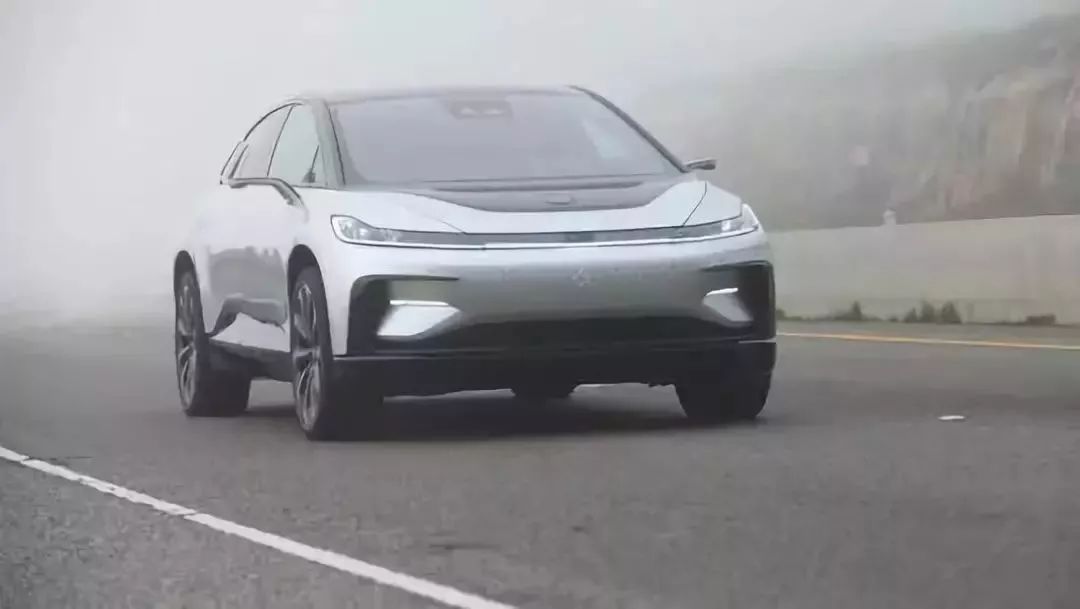
Faraday Future has made several promises regarding the production and delivery dates of the FF91 in the past. The last promise was to start production in 2018. However, Dr. Breitfeld assured reporters that this time would be different. He said, “Faraday Future’s biggest challenge is the execution, and this is where I can bring my experience and expertise.”

Of course, in order to achieve the production goal of the FF91, it is necessary to establish infrastructure, build relationships with suppliers, and most importantly, have financial support. However, Faraday Future has been embroiled in financial scandals for the past two years, and there are also many management problems, which have resulted in the delays of the FF91’s production. Dr. Breitfeld stated that the team is working to resolve these issues. They are providing financial guarantees to suppliers and seeking new investors in the absence of sufficient cash reserves. The required capital for the production stage has been reduced from the original estimated $2 billion to $850 million.
Quick Comment: The new CEO announced the latest production time at the beginning of his tenure, but will consumers who have been let down by FF several times still believe in FF’s “promise”? Dr. Breitfeld may have forgotten that he left both Byton and Iconiq Motors before the mass production stage. Moreover, whether the required $850 million can be raised for production remains unknown.
Nissan Plans to Launch a Crossover EV with a Range of 300 MilesAccording to foreign media reports, Nissan showcased a crossover electric vehicle with a longer range and higher power at a recent dealer conference. It is expected that Nissan will display a closer-to-production version of the vehicle at the Tokyo Motor Show next month, and it will officially go on sale in 2021.
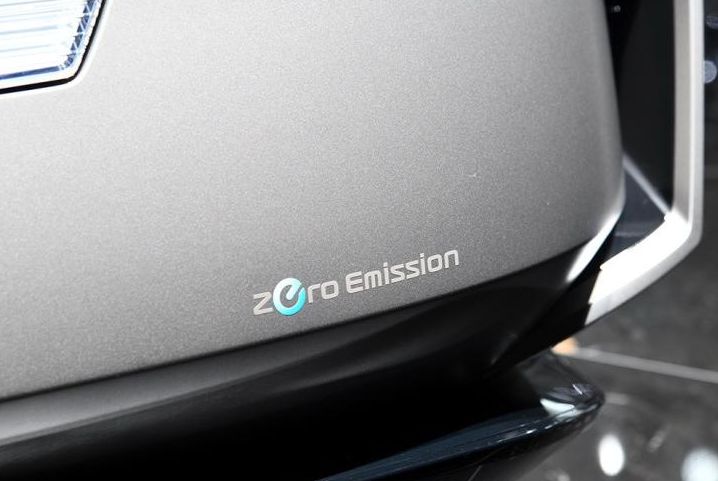
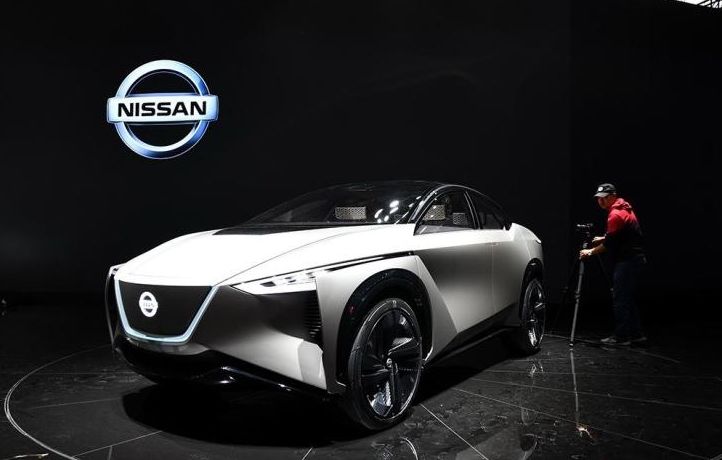
The above picture is the IMx concept car.
According to dealers present at the conference, the vehicle is more like a compact car and SUV crossover, with compact proportions and a spacious cabin with a adjustable digital instrument panel. The vehicle has a range of 300 miles and can accelerate from 0-60 mph in under 5 seconds.
Quick comment: In the global trend of the automotive industry to electricization, Japanese car companies seem to be the least willing to change. However, it seems that not changing is not a wise choice now. From the parameters currently disclosed by Nissan, it is not difficult for traditional car manufacturers to produce a pure electric vehicle with “good” parameters. The key is the willingness to do so.
Daimler Group rumored to stop developing internal combustion engines?
On September 20, German media quoted Daimler’s development director Markus Schaefer as saying that Daimler currently has no plans to develop the next generation of internal combustion engines, but is focusing on developing new electric power systems. The news immediately sparked a lot of discussion among netizens online. Tesla CEO Musk later tweeted in response to his official Twitter account, “Congratulations! Electric cars are the future.”
However, only a few hours later, a statement allegedly from Daimler stated that Daimler has not made a decision to withdraw from the development of internal combustion engines, and that the latest generation of “FAME” engines consists of gasoline and diesel engines, which have recently been applied to the entire product line.
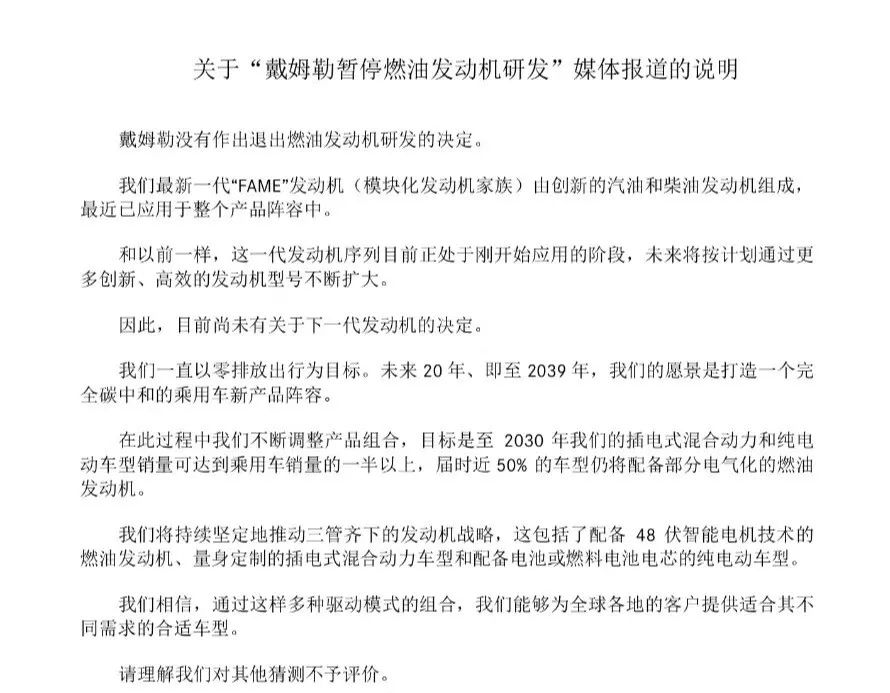
Quick comment: For any car company, all disclosures to the media must go through layers of scrutiny before finally being reported. The Daimler Group, known as the “inventor of the automobile,” is no exception. In fact, for large car companies, multi-line development of technology research and development has always existed, and the focus of technology research and development in the entire automotive industry has now shifted to electrification, although electrification does not necessarily mean pure electric drive, and even the 48V light hybrid system is still part of the electrification route.>
So why did the news that temporarily suspending development of internal combustion engines reappear with a “refutation” after extensive circulation? I think it’s because the reaction to this news report exceeded Daimler Group’s previous expectations. In order to reduce consumer concerns and partner pressure, they had to issue a “refutation.”Younuduo Auto employees start rotating shifts
Recently, a set of pictures went viral on the internet, which seems to be an internal memorandum released by Younuduo New Energy Vehicle Co., Ltd. “Announcement about Adjusting the Attendance Time of Employees in the Fourth Quarter of 2019.” The memo clearly stated that Younuduo will adjust the attendance time from September 16th according to production and business needs, and implement a working hour system of “part-time work, rotating shifts, and part-time off.”
Until now, Younuduo has not responded to this matter. But in mid-July this year, it was revealed that a large number of workers had resigned from Younuduo’s factory in Putian, Fujian. At that time, Younuduo’s PR person Zhou Liang responded that the above news was not true, and the company was operating normally, and there would be new models released in the second half of the year.
Younuduo’s first product, π1, achieved sales of 2,400 units in three months in 2017. In 2018, sales reached 7,397 units, already at the upper-middle level among new car makers. Earlier this year, Younuduo set a sales target of 20,000 units for the whole year, but as of July, cumulative sales were only 1,563 units. In the just-ended August, the sales of two models, π3 and π1, were as low as 7 and 21 units, which is worrying.
Quick Comment: When the entire domestic auto industry is facing the great challenge of declining sales, as a new energy vehicle company that has not yet matured, it is naturally the first to bear the brunt. In addition to Younuduo Auto, Ming An Auto also expects to lay off 50% of its employees this year; Changjiang Auto, which was valued by the richest Chinese Li Ka-shing, also had reports of unpaid wages and shutdowns at many branches this year, truly reflecting Buffett’s famous saying: “Only when the tide recedes can you tell who’s been swimming naked.”
Volkswagen ID.4 pricing may be similar to Touareg
Volkswagen plans to align electric car pricing with traditional internal combustion engine cars
Scott Keogh, the CEO of Volkswagen America, recently stated that Volkswagen is preparing to align the pricing of its electric cars with those of traditional internal combustion engine cars. In an interview, Keogh stated that Volkswagen’s goal is to match the pricing of its electric cars with that of its fossil fuel-powered cars. He spoke about the soon-to-be-released Volkswagen ID.4, stating that this electric car is ready for mass sales in the US market and will replace the ID.3 hatchback electric car, which is not sold in the US.
ID.4 has a similar size as the Tiguan and a price that matches traditional cars. The Tiguan starts at $25,290, and the final price can go up to $39,890 after various options are added. It is currently unclear whether Scott Keogh’s envisioned price includes any tax credits and other incentives. When the ID.4 goes on sale, Volkswagen will be able to take advantage of a $7,500 tax credit. If Volkswagen sells the ID.4 for less than $30,000 before tax credits, they will change the game in terms of the pricing of electric cars.
Analysis: why haven’t electric cars quickly replaced fuel cars with overwhelming force? In addition to range anxiety, another important factor is actually the price. This is also why most pure electric car companies use direct sales channels today. The entire industry is trying to reduce costs and gain favor with consumers. Volkswagen’s vision is good, but it has always been a problem to balance pricing and dealer profits when facing so many dealerships worldwide.
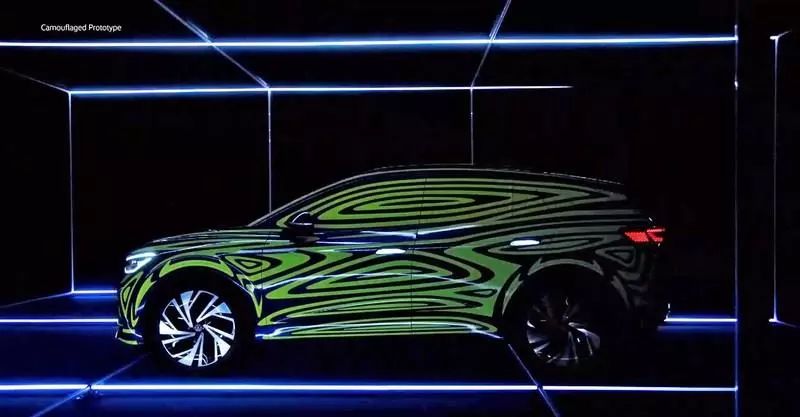



This article is a translation by ChatGPT of a Chinese report from 42HOW. If you have any questions about it, please email bd@42how.com.


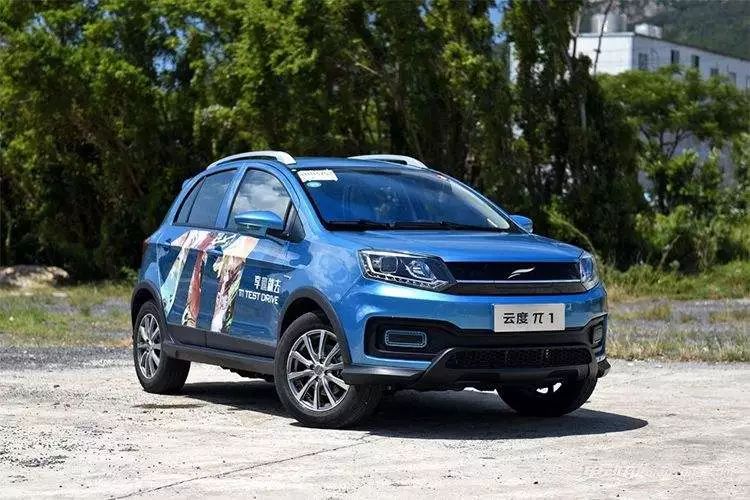
 *
*